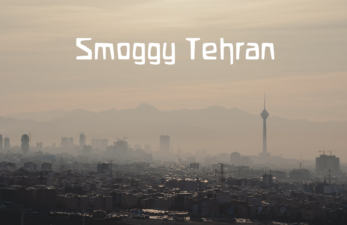 With so many flat roofs across the Middle East, surely the region is ripe for a bit of rooftop gardening?
With so many flat roofs across the Middle East, surely the region is ripe for a bit of rooftop gardening?
Recent reports that people in the Gaza Strip are embracing rooftop gardening has got us thinking about the urban gardening phenomena and it’s relevance to the Middle East. Whilst growing your own maybe something greenies love to do, there is a real incentive for those who have not bought into the green-agenda to take part too. That’s the beauty of urban gardening: it works on lots of levels and has multiple benefits. So as well as helping to reduce air pollution, keeping the city cool during hot summers and warmer during cold winters, the rooftop crops can help those living in poverty stave off starvation and even generate a decent income.
‘I Just Want To Feed My Family’
Neveen Metwally, a researcher at the Central Laboratory for Agriculture Climate in Cairo, Egypt spoke to IRIN about urban gardening in the region. She explained that city dwellers must be convinced of the benefits of urban horticulture by focusing on the needs of ordinary people and the benefits that urban agriculture brings to them. “I can say to someone, ‘A rooftop garden will help the environment’, and they’ll say, ‘No, thank you – I just want to feed my family’. So I must identify and communicate benefits that are of interest to that person.”
Metwallly added that in Egypt the numerous benefits of rooftop gardens include decreasing air pollution which has been a huge concerns for many living in the highly polluted city. Cairo along with other Middle Eastern cities such as Tehran, are known for their dangerously high air pollution. In fact, it was recently reported that 27 people die every day in Tehran due to air pollution-related disease and the Egyptian capital’s air pollution is aggravated by the annual rice burning season which turns the city dark with black smoke.
Building Resilient Cities
Rooftop gardens can also help absorb heat and act as insulators, reducing the energy needed for cooling or heating; provide low-cost food and also a refuge for bird, bees and insects. These benefits are clearly transferable across the Middle East region and urban agriculture can play an important role in strengthening the resilience of cities and their populations against the impacts of climate change. According to the UN Population Fund, about half the world population already lives in urban areas with the number expected to reach some five billion by 2030.
Being able to supply their own fruit and vegetables is clearly an advantage in a time of food scarcity and rising prices. And it’s also not impossible. Hong Kong and Singapore, for example, both produce more than 20% of their meat and vegetables within the city limits. As well as the environmental and economic benefits, rooftop gardens also bring a much needed splash of colour to our rather grey concrete jungles so lets get gardening!
:: IRIN Report
:: Image via Argenberg on flickr.
For more on Urban Agriculture see:
Green Your Thumb and Start Gardening For Food
Lease Your Roof To A Fiddler, A Farmer, or An Independent Power Producer
Gaza’s Green Roofs of Herbs and Vegetables




Afri_geka and Arwa, do you have any success story since this posted in last 2011? I will be relocating to Amman next month. I am thinking about your idea ‘urban gardening on the flat roof tops to combat food insecurity in the middle east’ I have great success in here in Norman on backyard gardening, we had plenty of harvest even hard hit drought last year. Thanks -Chandra
Composting could be a way, but even this needs some knowledge/experience. We are talking about poor and thus food insecure urban dwellers in overcrowded cities with no gardens and often no backyards. Knowledge about agicultural practices is often lost within the new generation. There is a need for composting methods in a small scale (micro technologies)that can be used on a household level, usually on their rooftops. The needed material must be available in the area, best if for free/recycled. The same goes for the water problem.
Thanks for your comment Afri_geka and you make a great point about lack of good quality soil or fertilizer but what about composting?? People tend to eat a lot of fresh food in the OPT so surely there is the possibility to compost, which not only creates better quality soil but also fertiilizer
urban gardening on the flat roof tops to combat food insecurity in the middle east, especially palestine, is an idea i strongly support. what I experienced as main constraints were access to good soil, organic fertilizers and water, to make the output reach a certain volume to fill the consumption gap. otherwise the motivation level can be quite low amongst the city dwellers, even if they are food insecure. any low-technology solutions for that?
New urban farmers in the US and Canada are having success with SPIN-Farming, which is an organic-based small plot farming system that outlines how to make money growing in backyards, front lawns and neighborhood lots. It can also be adapted to rooftops. SPIN provides everything you’d expect from a good franchise: a business concept, marketing advice, financial benchmarks and a detailed day-to-day workflow. In standardizing the system and creating a reproducible process it really isn’t any different from McDonalds. By offering a non-technical, easy-to-understand and inexpensive-to-implement farming system, it allows many more people to farm commercially, wherever they live, as long as there are nearby markets to support them. A free calculator that shows how much farm income can be made from small plots is available at the SPIN website – http://www.spinfarming.com/free/